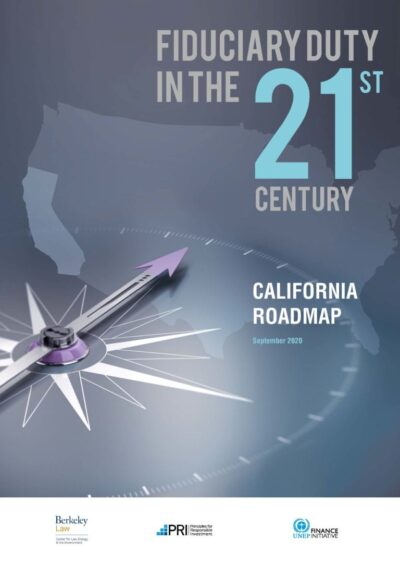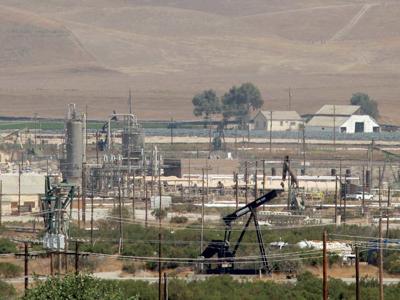Regulation
What’s a Major Question? (Judicial) Opinions differ.
Scholars don’t know the answer. Nor, apparently, do the federal courts of appeals.
In West Virginia v. EPA, the Supreme Court used the “major question doctrine” to overturn Obama’s signature climate change regulation. Once an issue reaches a certain level of significance, the Court says, Congress generally would want to make its own decision rather than allowing an agency like EPA to decide. Scholars have criticized the opinion …
Continue reading “What’s a Major Question? (Judicial) Opinions differ.”
CONTINUE READINGGovernor Gavin Newsom announces he will sign landmark climate disclosure bills SB 253 and SB 261!
SB 261 first proposed and drafted by CLEE Climate Risk Initiative
Breaking news! Governor Gavin Newsom just announced on stage at New York Climate Week that he will sign both of the landmark greenhouse gas emissions and climate risk disclosure bills, #SB253 (Wiener) and #SB261 (Stern), the later of which was first proposed and then drafted by our Climate Risk Initiative at the Center for Law, …
CONTINUE READINGCLEE-Proposed Climate Risk Disclosure Legislation Passes CA Legislature
SB 261 results from CLEE report recommendation
The California Legislature passed two path-breaking climate risk disclosure bills this week. Both bills now go to Governor Gavin Newsom’s desk where he has until October 14th to sign them. Senate Bill 261 (Stern) requires major corporations to disclose climate change related financial risks, using a framework consistent with that of the Task Force on Climate …
Continue reading “CLEE-Proposed Climate Risk Disclosure Legislation Passes CA Legislature”
CONTINUE READINGUpcoming Regulatory Cases in the Supreme Court
Two pending cases could result in big cuts to agency powers
Three weeks from today, the Supreme Court starts its 2023 Term. There are two blockbuster cases on the docket. In one case, the issue is whether to overrule the Chevron case, which has been foundational to administrative law for the past four decades. In the other, the issue is agency power to sanction violations of …
Continue reading “Upcoming Regulatory Cases in the Supreme Court”
CONTINUE READINGIncome-Based Electric Bills: Fact and Fiction
California is in the process of making income-graduated fixed rates a part of ratepayers’ electric bills. This is the first post in a series that follows that proceeding.
Under new legislation, California is moving to a novel system that includes income-based fixed charges for electricity. Some critics contend that this is a giveaway to incumbent utilities. It’s not. Others have implied that the charges reflect new costs to ratepayers on top of existing rates. This is also not accurate. There are, however, important …
Continue reading “Income-Based Electric Bills: Fact and Fiction”
CONTINUE READINGClimate Change Got 4 Minutes in the GOP Debate
Ron DeSantis is right: Stop asking candidates if they “believe in climate change” and ask them what they will do so we learn about their environmental deregulation agenda.
The topic of climate change got about 4 minutes of airtime during the first half of the first presidential primary debate held this week by Fox News. That’s actually a pleasant surprise when you think about it: human-caused global warming came up before Donald Trump’s indictments. In case you missed it, the full transcript of …
Continue reading “Climate Change Got 4 Minutes in the GOP Debate”
CONTINUE READINGCars, Smog, and EPA
Over the past fifty years, EPA has overseen incredible reductions in auto pollution.
This is part of an occasional series of posts about the evolution of pollution standards. Today’s subject is pollution control for new vehicles, which have been known to cause smog since the 1960s. The history of these pollution standards is quite distinctive. At the high temperatures in internal combustion engines, some of the nitrogen in …
Continue reading “Cars, Smog, and EPA”
CONTINUE READINGState Air Regulations Can Go Above and Beyond National Standards
State and local regulators can and should work to reduce particulate matter, ozone, and NOx emissions even when national standards are met.
States and local air quality regulators have the legal authority to set particulate matter (PM), ozone, and nitrogen oxides (NOx) emissions standards and adopt regulations for these pollutants when they are already in attainment of the national ambient air quality standards (NAAQS) set by the U.S. Environmental Protection Agency (EPA) under the federal Clean Air …
Continue reading “State Air Regulations Can Go Above and Beyond National Standards “
CONTINUE READINGConstraints on Rollbacks
Regulations have some sticking power, even when the White House changes hands.
The Trump Administration’s massive campaign against government regulation was horrifying at the time and depressing in retrospect. Many people have been left with doubts about whether it’s even worthwhile to bother with new regulations, given the risk of a switch in control of the White House. I don’t question Trump’s regulatory carnage. But Obama’s achievements …
Continue reading “Constraints on Rollbacks”
CONTINUE READINGCalifornia Supreme Court Rules County Ordinance Limiting Oil & Gas Development Preempted by State Law
Court Decision May Well Be Correct as a Matter of Law, But Represents Outdated & Unsound Public Policy
Last week, the California Supreme Court unanimously ruled that a local initiative measure that would have imposed severe restrictions on oil and gas development in Monterey County is preempted by state law and therefore invalid. The decision came in the case of Chevron U.S.A., Inc. v. County of Monterey. The Supreme Court’s ruling was predictable, …
CONTINUE READING












